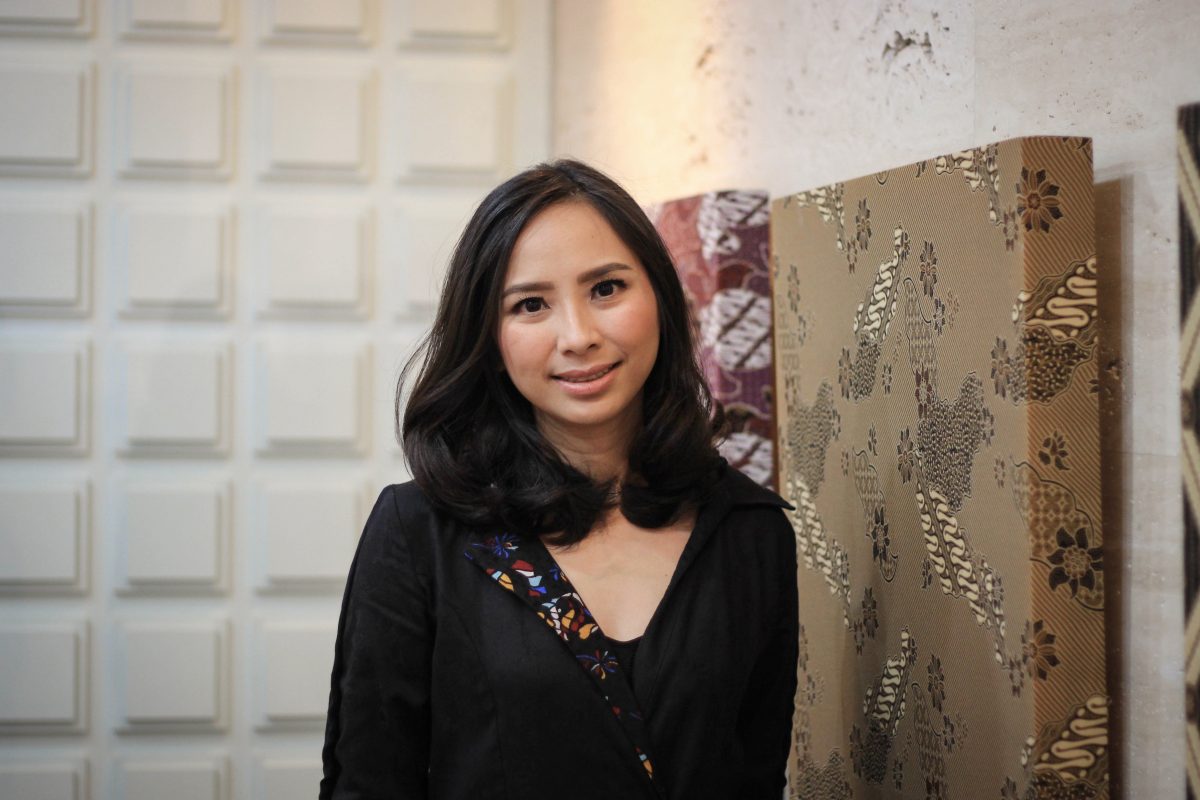Tell us about yourself and how you started in business.
My name is Michelle Tjokrosaputro and I’m the CEO of PT. Efrata Retailindo, as well as Founder of the fashion line Bateeq.
In 2004, there was a big split in the family business and my father was handed the textile manufacturing business. At that time, I didn’t feel ready to join.
Unfortunately my father suffered multiple strokes. The doctor advised him to retire but our company was still recovering from the 1990s financial crisis. My father knew that without him the company would fold. So he asked me to help and I agreed.
How did you turn the business around? What challenges did you face?
In 2005, my father became paralyzed. The company had just laid off around 1,000 people due to its precarious financial situation and there was a strike. The factory descended into chaos.
I was lost. I majored in Business and Communications and didn’t know anything about textiles or running a factory. I told my parents, “I don’t know if I can make this work, maybe the factory will close. But I promise you one thing: I will fight to the end.”
Previously my father had run the factory almost single- handedly – he called all the shots. But I knew that I had to do it differently; after all, I didn’t have his qualifications and experience. I told my directors, “I don’t have all the answers but I’m here with you. With your experience, wisdom and knowledge, we will come through this together.” This collaborative approach helped us to turn the corner.
What does success mean to you?
My goal is to grow the company, so it has to be profitable. Statistics such as absolute sales and staff strength don’t overly concern me. What matters more is my employees’ wellbeing. Do they feel that they are being taken care of? Do they have the means to send their kids to school? I’m happy when my shareholders, customers and employees are happy.
How do you see the role you play in educating and nurturing future female business leaders and entrepreneurs?
Every year, I run leadership classes for about 100 employees – both women and men – to develop their professional and personal growth.
For the women specifically, I want to empower them to overcome societal expectations that make them feel guilty all the time. When women are at home, they feel guilty for missing work, and vice versa. This constant feeling of inadequacy erodes their confidence, and subsequently when women are paid less, they think that they deserve it.
To help my female employees cope better, I try to talk to them individually, not as a teacher or employer, but as a supportive friend.
Sometimes I try to help in other ways. Many of my workers are not financially savvy and make decisions they regret. So I give them simple money management advice; I bring in banks to educate them and to improve their financial literacy. This helps them to better manage their money.
Are there times when you felt that being a woman has helped you to overcome challenges in life or work?
It helps to be good at multi-tasking, and also having a woman’s compassion. I think it’s important to be able to empathize with people and to show that you genuinely care about them.
Are there any glass ceilings that exist in your industry for women leaders?
I don’t really feel that in my factory or in Indonesia; maybe it’s a different story elsewhere. For example, when I go to Japan or China, almost all the people I meet in leadership roles are men.
Then again, I just came back from a conference in Kenya, held by the International Textile Manufacturers Federation. I was elected to be the first and only woman on the board in its 114- year history, and the first Indonesian as well. So even when you think glass ceilings exist, it’s possible to break through them.
How do you juggle your personal and professional life?
Thankfully, I have a really supportive husband who encourages me to pursue my goals, but who also reminds me not to lose track of what’s truly important to me in life.
What’s your recipe for success?
You need to have the wisdom to make the right decision for yourself. It’s not just about profit or money; sometimes it’s a question of what’s in line with your values. For example, if I open more stores, I might be more successful financially, but I’d spend more time away from my children.
It’s about taking a holistic approach to your priorities in life. You should have strong values that anchor the decisions you make and guide the steps you take, going forward.
What would be your advice to aspiring women entrepreneurs?
Know who you are, and what’s important to you. Then put in the effort to make it work.
Personally, I’m more focused on my work so I know I cannot be a stay-at-home mother, as much as I love my children.
To spend time with them, I fly back and forth a lot. I’m probably not as successful as other people who devote themselves entirely to work. But I don’t mind. The moments that I spend with my kids are precious to me, and they make everything worthwhile.
UBS x ANGIN Women’s Spotlight is a special collaboration project between UBS Unique and ANGIN to celebrate strong Indonesian women who are exemplary leaders, unique changemakers, and role models. The project celebrates and reflects upon the individuals’ personal anecdote and professional journey and how they are challenging, reinventing and innovating their workplace in order to improve gender equality and be a force of change in their respective community and industry.





